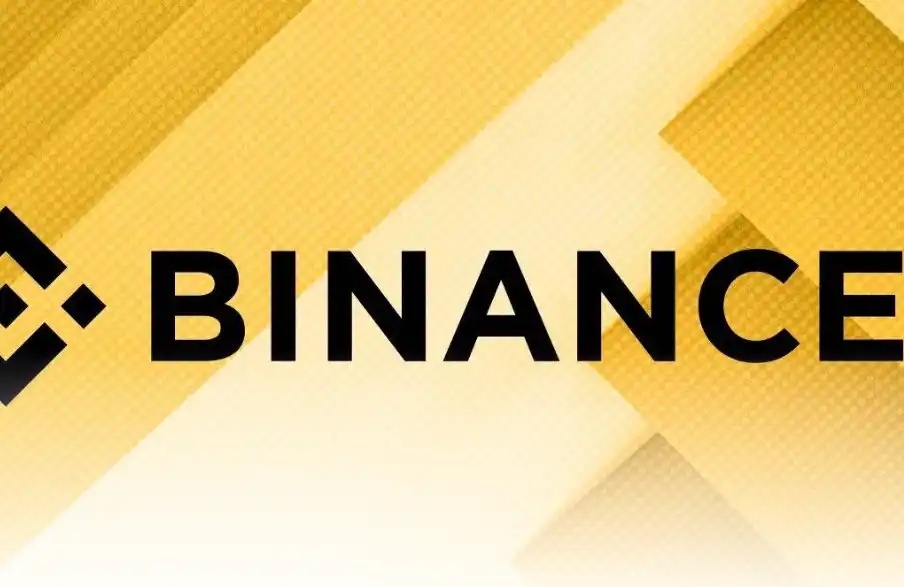"Digital Nomad Visa" Guide: Over 40 Countries on 5 Continents to Help You Start Your Digital Nomad Journey
Original Title: "Digital Nomad Visa Guide: Over 40 Countries Across 5 Continents to Help You Start Your Digital Nomad Journey"
Original Source: Freya & Liang, Deep Tide TechFlow
Do you want to become a digital nomad? Answer Zoom video calls in the Sahara Desert, work comfortably on your laptop by the beach in Lisbon, go diving and swimming after work in Bali...
According to a survey report, the number of "digital nomads" worldwide has reached 35 million in 2022. After the pandemic, remote work has gradually become popular, and in emerging fields such as Web3, digital nomads have become the norm in the industry.
However, there is always a hurdle in front of digital nomads - visas. Tourist visas usually only provide a stay of 30-90 days, making it difficult for digital nomads to live and reside in the corresponding country or region for a long time.
Fortunately, to cater to this trend, many countries have introduced corresponding measures to promote remote work and the development of "digital nomads", launching "digital nomad visas" (Digital Nomad Visas) that allow for long-term residency.
According to Forbes, as of the end of 2022, over 40 countries worldwide have launched "digital nomad visas." Currently, at least 15 European countries, including Germany, Spain, Greece, Croatia, Estonia, Latvia, and the Czech Republic, have released "digital nomad visas," remote worker visas, or self-employed visas suitable for remote work. In addition, countries such as Japan are also stepping up their efforts to launch such visas.
Among them, the most popular are Schengen countries in Europe such as Portugal, Spain, and Estonia. Obtaining a digital nomad visa in any of these countries allows you to reside and live in all 27 Schengen countries. Many countries offer permanent residency (green card) after renewing the visa for 5 years.
So, how to apply for a digital nomad visa? Which countries currently offer digital nomad visas? What are the respective requirements? What are the things to pay attention to when living locally?
Regarding the above questions, TechFlow from DeepTech has compiled a comprehensive guide to "digital nomad visas", covering over 40 countries across five continents.
Overall, to apply for a digital nomad visa, you need to meet the following basic requirements:
- Passport is valid for the next few months during the application process.
- Age over 18 years old;
- Through criminal background checks in the country of nationality;
- Possessing proof of self-employment or remote work capabilities, typically required for working overseas or with clients from overseas, without competing for local job opportunities.
- Submit income/deposit proof: The standards vary by country, generally falling within the range of 1500-5000 euros per month for personal income or 10,000-20,000 US dollars for personal deposits. If traveling with family members, the income requirements will increase proportionally.
- Payment of visa fees: 40-3000 US dollars/person;
- Pay taxes according to local residential policies;
- Submit accommodation proof/lease agreement;
- Having health or travel insurance.
Europe
Portugal

Due to its relatively affordable cost of living, pleasant climate, and relaxed tax policies, Portugal has gradually become the center of digital nomads in Europe, and has also become the center of Web3 in Europe. For example, Lisbon has gathered a large number of Web3 practitioners.
In the past, digital nomads mainly applied for the D7 visa in Portugal. In October 2022, Portugal officially opened the "digital nomad" visa.
After a successful application, digital nomads can usually legally reside and work in Portugal for one year, or have a two-year visa type, but they need to go to the immigration office to apply for long-term residency after arriving in Portugal.
With this visa, you can freely enter other Schengen areas. As long as you meet the conditions and have no criminal or adverse records in the local area, you can renew it after it expires, and it can be renewed for up to five years. After living for five years, you can apply for permanent residency.
How to apply? The following conditions are required:
- Non-EU foreign nationals;
- Minimum remote income of 3040 euros per month (with spouse +50%, with dependent children +30%);
- No criminal record;
- Proof of accommodation in Portugal for one year (rental or purchase);





Germany

Although Germany does not have a specific digital nomad visa, it offers a Freelance Visa that allows foreign freelancers and self-employed individuals to reside in Germany for six months to three years.
This visa requires the applicant to pay a visa fee of 100 euros and provide proof of self-sufficiency in terms of income. Germany requires remote workers to pay taxes and it is recommended that freelancers with multiple clients apply for the visa.
Due to German language requirements and the need to provide work-related documents, the application process for the digital nomad visa in Germany is more complex than in other EU countries. Additionally, registration with the German tax office and submission of documents such as bank statements, portfolio, and professional qualifications (such as diplomas and certifications) are also required.
Norway

Norway offers an independent contractor visa for digital nomads and remote workers, allowing non-EU or European Economic Area foreigners to live and work in Norway for up to two years. However, applicants are required to have their own sole proprietorship registered outside of Norway and must have at least one Norwegian client. Visa holders must pay local taxes and apply for a VAT number during their stay in Norway.
Norway has also launched the Svalbard digital nomad visa. Svalbard is the northernmost territory of Norway, where you can see glaciers, reindeer, polar bears, arctic foxes, and northern lights. The Svalbard digital nomad visa is valid for life, and once obtained, you can stay for as long as you want.
Malta

Malta is a small island country in Europe. Currently, there are approximately 1000 digital nomads, most of whom are EU citizens. The digital nomad visa in Malta is valid for one year and can be renewed. Spouses, family members, and pets can also be brought along.
The visa fee is 300 euros (including family members), and applicants are required to work as employees or self-employed individuals or have a business outside Malta, with a minimum monthly income of 2,700 euros, and provide proof of income and bank statements for the past three months.
Currently, digital nomad visas can only be applied for through the embassy and cannot be applied for directly online.
Cyprus

The digital nomad visa in Cyprus grants the right for British citizens and other non-EU citizens to reside on the island and work remotely for 12 months, with the option to extend for an additional 24 months, and the ability to bring along their spouse and dependents.
Visa holders must stay in Cyprus for at least 60 days each year and cannot leave the country for more than three months at a time. If you reside in Cyprus for more than 183 days in a year, you will be considered a tax resident. Unless you are a tax resident elsewhere, you will be required to pay taxes in Cyprus.
Cyprus has increased the number of visas from 100 to 500. The processing fee is 70 euros and requires a remote work contract or business document, as well as proof of a monthly net income of 3,500 euros (if accompanied by a spouse, a monthly income of 4,200 euros is required, and if accompanied by a spouse and one dependent, a monthly income of 4,830 euros is required. For each additional dependent, the minimum income requirement increases by 15%). In addition, there is a health and accident insurance of 30,000 euros.
Georgia

Georgia allows residents from 95 countries to enter Georgia without a visa and stay for up to 365 days. After residing for 180 days in a year, they will become tax residents. If their annual income is less than $155,000, they only need to pay 1% tax.
Applying for a Georgian digital nomad visa can be completed entirely online, and the entire process takes less than two weeks. There is no fee for obtaining the visa, but applicants must provide proof of a monthly income of $2,000 or savings of $24,000.
Greece

The digital nomad visa in Greece is valid for one to two years and allows for spouses and dependents to accompany the visa holder. If the visa holder's remote work is not economically related to Greece, they are not required to pay taxes even if they stay in Greece for more than 183 days.
If you need a Greek entry visa, you must apply for a digital nomad visa from your country of residence, which is valid for 12 months. If you can enter Greece without a visa (such as holding a passport from the United States, Canada, and Australia), you only need to apply for a two-year residence permit in Greece. Greece is part of the Schengen area, and visa holders can enter 27 European countries without a visa, but must stay in Greece for at least six months during the visa validity period.
The applicant must submit proof of remote work and demonstrate a minimum income of 3,500 euros per month (if accompanied by a spouse, the spouse must earn at least 4,200 euros per month; if accompanied by a spouse and one dependent, the monthly income requirement is 4,830 euros; the income requirement for each dependent increases by 15%).
If it is an individual business operator, the company must be registered outside Greece, and the company's business activities and address must be stated in the application.
Czech Republic

The validity period of Czech visa is one year, and the holder is allowed to renew it as a residence permit, which is valid for two years. The spouse and direct relatives can be accompanied, but they are not allowed to seek local employment during their stay in the country.
Visa application is free of charge. Applicants must be citizens of one of the following countries: USA, UK, Australia, Canada, New Zealand, Japan, Taiwan, and South Korea. They must work in the IT or STEM field, hold relevant degrees or have relevant work experience, work remotely as an employee or freelancer for a company with at least 50 employees, and earn a monthly income of $2,730 (1.5 times the minimum wage in the Czech Republic).
Latvia

The Latvian digital nomad visa will allow remote workers to reside in the country for one year and can be renewed for another year. After living for two years, holders can apply for permanent residency, and after legally residing for five years, they can apply for Latvian citizenship. This is a huge benefit for digital nomads seeking to obtain an EU passport.
For third-country nationals (non-EU citizens), it is also good news that they can choose to travel to 26 Schengen countries without a visa during their stay in Latvia. However, it may be stipulated that visa holders must stay in Latvia for a certain period of time within the validity period.
The requirements for the Latvian digital nomad visa are that the applicant is a citizen or resident of an Organisation for Economic Co-operation and Development (OECD) country (such as the United States, Israel, Canada, Mexico, United Kingdom, Japan, New Zealand, Turkey, etc.); the applicant must provide proof of earning remote income for at least six months through a work contract or business document with the same company, which must also be registered in an OECD country; and the applicant must have a monthly income of at least 2,857 euros.






Dubai

Dubai is one of the wealthiest cities in the world. Its digital nomad visa is valid for one year and can be extended for a longer stay, but a new visa application is required. Travel outside of the UAE is allowed, but each departure from the country cannot exceed six months within the visa's validity period. Visa holders will have access to many services provided to other residents, including enrolling children in school, opening bank accounts, and even applying for bank loans, all without income tax.
The application fee is 287 US dollars. Applicants must work for a company located outside of the United Arab Emirates, own a business or be self-employed, and provide proof of employment or ownership for at least one year. They also need to demonstrate a monthly income of 3,500 euros for the past three months.
Sri Lanka

Sri Lanka is often hailed as one of the best destinations for digital nomads around the world. Although it technically doesn't have a digital nomad visa, the island has a highly effective tourist visa. The application fee is $150 for 90-180 days, $200 for 180-270 days, and can be extended up to 270 days, with some countries being able to extend online for 30-90 days.
Taiwan Region

However, mainland residents are not eligible to apply for the Employment Gold Card.

It is reported that the Japanese government plans to introduce a "digital nomad visa" policy within this year, with the aim of creating a convenient environment for high-skilled talents to work and live in Japan for a long time.
Oceania

Currently, there is no digital nomad visa available in Australia. However, there is a Working Holiday Visa that allows a stay of up to 12 months from the first entry into Australia and permits temporary work in any field. It is important to note that working for the same employer for more than six months is prohibited.
Australian working holiday visas are only issued once in a lifetime to eligible individuals. Participation in designated agricultural work may entitle one to an additional 12-month visa.
If holding a Chinese passport, the general qualification requirements for applicants are:
- Hold a valid Chinese passport;
- Applicants must be at least 18 years old and not yet 31 years old when submitting their application.
- Sufficient financial support for working holiday (approximately 5000 Australian dollars);
- Able to communicate in English (with a minimum IELTS score of 5).
- Have good personal credibility and meet health requirements.
New Zealand

In September 2023, the New Zealand National Party released a proposal to attract overseas talent:
International Graduates Visa - a 3-year open work visa provided to holders of undergraduate or higher degrees from the world's top 100 universities in the past 5 years. The visa will be limited to 500 spots in the first year.
Global Growth Tech Visa - provides direct residency visas for applicants with high-end special skills, working in top global technology companies and earning an annual salary of 400,000 New Zealand dollars. The visa will open 250 spots in its first year.
Argentina

The Argentine government will also provide packages including airport transfers and transportation discounts, accommodation discounts, shared office space discounts, and more benefits in education, culture, and cuisine. The government also emphasized that Buenos Aires is among the top ten best cities for digital nomads worldwide, and the city has been named "the best city to live in Latin America for travelers."
Mexico

The digital nomad visa in Mexico is valid for one year and can be renewed for a total residency of four years. Applicants are not allowed to work for local companies and must have income from outside of Mexico. If they stay for more than 183 days in a year, they will also be considered a tax resident of Mexico.
Due to the fact that the visa is mainly aimed at Canadians, it is necessary to apply for Canadian dollars at a local bank branch to pay all fees, which is about 288 US dollars. It is required to prove a monthly income of at least 2,720 US dollars or an average monthly bank balance of 35,290 US dollars. Applicants must also meet one of the following conditions:
Keep a bank balance of $43,000 for the past 12 months, or have a monthly income of $2,595 for the past 6 months (tax-free, with an additional $861 for each family member if accompanied by a spouse or dependent), or own a Mexican property worth at least $346,000.
Canada

The digital nomad visa in Canada supports a maximum residency period of six months, but if the person is employed by a Canadian company, they can choose to extend their permit. Its focus is on bringing in tech workers from the United States, but the Canadian government also encourages workers from around the world - recent initiatives have also encouraged healthcare workers and STEM industry professionals to work in Canada.
This visa measure will last for one year or until the Canadian government receives 10,000 applications. Applicants can bring their family members with them, but only the applicant will count towards the 10,000 limit. Any other family members will not be counted.






Anguilla

The British Overseas Territory of Anguilla is located in the Caribbean region. The digital nomad visa on this small island is valid for 12 months and welcomes not only remote workers but also students participating in online courses.

The Nomad Digital Residence program in Antigua and Barbuda allows for a two-year residency on the island, with the option to bring along family and pets.
The visa fee is $1,500 per person, and applicants must be employed by a company outside of Antigua and Barbuda, own a company, or be self-employed with an expected income of at least $50,000.
Barbados

The application process is also relatively simple and all completed online, without any interaction with the embassy or consulate. The application fee is $2,000 for individuals and $3,000 for couples and families. If accompanied by a spouse or child, proof of relationship is required. Applicants must also be employees of a Barbados-based company, freelancers for Barbados-based clients, or have a business established outside of Barbados and earn $50,000 USD within a year.
Belize

Dominican Republic

The applicant needs to be employed remotely by a company based overseas in the Dominican Republic, or own a company, or work as a freelancer collaborating with foreign clients, with an annual income of $50,000.
Georgia

The license validity period for this plan is one year, and individuals who register their businesses as sole proprietors can also apply for permanent residency. They need to submit proof of personal income of $2,000 per month or at least $24,000 in bank statements. Under the Individual Entrepreneur Program, Georgia imposes a 1% tax on turnover, with a maximum of $155,000.
Bahamas

Bahamas Extended Access Travel Stay allows digital nomads, freelancers, remote workers, and students to work on any of the 16 tax-free islands in the Bahamas for up to one year, with the possibility of extending their stay for up to three years depending on the situation.
The applicant needs to pay both the application fee and the license fee, with a total cost of $1,025 per person and $525 per dependent, and submit a letter from their current employer or proof of self-employment income. Citizens from the United States, Canada, the European Union, and the United Kingdom do not need an additional travel permit.
Panama

Panama is sunny and has a tropical climate, and has been rated as one of the most livable countries in the world. Its digital nomad visa allows holders to reside in Panama for nine months and can be renewed for another nine months, becoming a tax resident and enjoying the country's favorable tax rates.
The applicant needs to work remotely as an employee or business owner to earn income, or work remotely as a freelancer to provide income for clients outside of Panama, earning at least $3,000 per month.
Please note that when applying for the Panama digital nomad visa, you cannot travel with your family and must obtain the assistance of an immigration lawyer to submit your application.
Montserrat

Montserrat, an island with broadband Internet, calls its digital nomad visa a remote work permit, which is valid for one year and can be renewed. It allows you to bring your family and you don't need to pay taxes to the country.
The application process can be completed online within 15 minutes. A personal application fee of 500 USD or a family application fee of 750 USD for a family of four is required, with an additional fee of 250 USD for each dependent added. Applicants must be employed by a company outside of Montserrat or own a business, or work as a freelancer with foreign clients, and provide proof of an annual income of 70,000 USD.
Cayman Islands

The digital nomad visa in the Cayman Islands is aimed at wealthy digital nomads and remote workers, and is valid for two years. The entire application process is completed online and takes three to four weeks. Families can also apply together, including parents/step-parents, grandparents, children/step-children, spouses, and siblings/half-siblings, with a validity of two years.
The visa fee is 1,469 US dollars for individuals/couples, and an additional 500 US dollars must be paid for each additional family member. Applicants must be employed by a company outside of the Cayman Islands or be self-employed with foreign clients. The annual income requirements are 100,000 US dollars for individuals, 150,000 US dollars for couples, and 180,000 US dollars for families.
Curacao Island

The digital nomad visa in Curaçao allows for a six-month residency on the island, with the option to renew for an additional six months, and the ability to bring along a spouse and dependents. During this time, visa holders are not considered tax residents and therefore are not required to pay local taxes.
The applicant needs to pay a $264 application fee, must work for a company or own a business or have a freelance client outside of Curaçao to earn a livelihood, and have health insurance on Curaçao Island, and have booked accommodation or residential lease.
The application process and requirements are relatively simple and flexible, and there is no minimum income requirement on the island of Curaçao. The cost of living is also one of the lowest in the Caribbean region.
Grenada

Grenada has English as its official language, so communication and adaptation will be much easier than you think. Applicants can bring their spouse and family members under the age of 18 to stay for one year, with the option to renew for another year, and can enjoy zero income tax.
The application fee is $1,500 for individuals, $2,000 for a family of four, and an additional $200 for each additional dependent. Applicants must be employed by a company located outside of Grenada, own a company located outside of Grenada, or work as a freelancer with clients outside of Grenada, and meet a minimum annual income of $37,000.
Armenia

Armenian digital nomad visa grants a temporary residence permit for one year, which can be renewed and allows for family members, including spouse, children, and parents, to accompany. If residing in the country for more than 183 days in a year, one will be considered a tax resident. After legally residing for three years, one can apply for Armenian citizenship.
The visa holder has the same opportunities as Armenian citizens and can enjoy national healthcare, education system, etc. Applicants must register in Armenia as a sole proprietor or "private entrepreneur" and work as a freelancer or business owner collaborating with clients from all over the world.
Africa
Mauritius
Mauritius is the only country that does not charge visa fees and does not require proof of income.
Its digital nomad visa is open to a wide range of digital nomads and lasts for one year. Applicants must be self-employed or employed by an employer outside of Mauritius and purchase health insurance for the duration of their stay.
Welcome to join the official BlockBeats community:
Telegram Subscription Group: https://t.me/theblockbeats
Telegram Discussion Group: https://t.me/BlockBeats_App
Official Twitter Account: https://twitter.com/BlockBeatsAsia
 Forum
Forum OPRR
OPRR Finance
Finance
 Specials
Specials
 On-chain Eco
On-chain Eco
 Entry
Entry
 Podcasts
Podcasts
 Data
Data

 Summarized by AI
Summarized by AI







